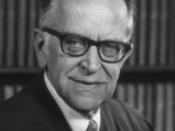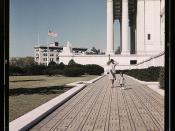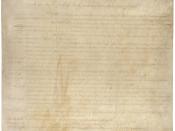Hazelwood: History of Censorship in Education Imagine for a moment that everyone in America who favors censorship of one kind or another suddenly got their wish. Imagine they could clap their hands and cause any material that they objected to, for whatever reasons, to disappear . . . Virtually every film and television show would vanish . . . School textbooks would be so watered-down as to be meaningless. Newspapers would be forbidden to run controversial stories . . . . (American Voices 117) The basis of American freedom is guaranteed in the Constitution's Bill of Rights by the First Amendment which states that "Congress shall make no law . . . abridging the freedom of speech, or of the press . . ." (as quoted in Student 9).
The right of freedom of the press is clearly outlined and newspapers nation-wide covet their responsibility to be the "watchdog" of society.
They were there when the Japanese bombed Pearl Harbor. They were there when the Cuban Missile Crisis broke out. And they were there when the Supreme Court ruled on the Hazelwood court case. The professional journalists have set an example for high school students who also want to cover important events that are pertinent to their school and community.
Up until 1987, the Tinker v. Des Moines (1968) case's ruling prevailed which appeared to reinforce the idea of high school students' right to free speech-as long as there was no "disruption of or material interference with school activities" according to the court (Essex 140). The case outlined two important aspects: Students in public school do not "shed their constitutional rights to freedom of speech at the school house gate" but school officials have "comprehensive authority . . . to prescribe and control conduct in the schools;" and school authorities...


